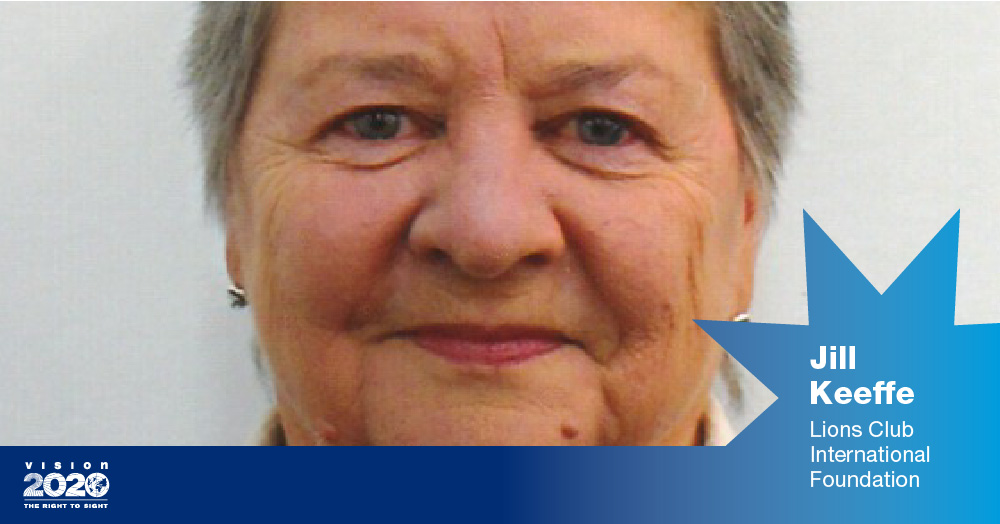Join a powerful, unprecedented alliance for better eye health for all.
Join IAPB-
Choose an alternate language here

Jill Keeffe, PhD, has been an inspirational leader in eye health and a committed advocate for adults and children with low vision or blindness through her contributions spanning three decades.
After completing her PhD at the University of Melbourne Department of Ophthalmology, where she specialized in low vision in children, Jill began work at the Centre for Eye Research Australia, eventually rising to head the Public Health Unit and the Director of the WHO Collaborating Centre for Prevention of Blindness. There, through equal parts innovation and drive, she helped develop and publish the Low Vision Kit, a tool to provide simple but accurate assessment of visual acuity and functional vision, easily employed by community health workers and teachers. The kit, published by the WHO, has allowed for widespread understanding of the assessment of functional vision, training for those with low vision on effective use of their vision, and easier access to simple visual acuity tests.
Currently a faculty member at the L.V. Prasad Eye Institute in Hyderabad, India, where she works for the advancement of rural eye care and vision rehabilitation, Jill has never ceased to expand her reach in the eye care world. In 2003, she began serving as Technical Advisor to Lions Clubs International Foundation’s (LCIF) SightFirst Program. In that capacity, she has helped developed comprehensive, sustainable eye care projects throughout the Western Pacific region promoting high-quality, cost-effective strategies and guiding programs to successful implementation. Jill was also instrumental in designing LCIF’s diabetes grant program in order to fight diabetes and its associated vision loss.
In 2002, Jill was named Chair of the WHO Low Vision Working Group (LVWG), a role she continued to serve in upon its transition to an IAPB working group in 2007. At the outset of the VISION 2020 initiative, recognizing the need for a world where “those with unavoidable vision loss can achieve their full potential,” it was clear to Jill that many low-income countries lacked the necessary services and trained professionals to assist adults and children living with low vision. Through the work of the LVWG under Jill’s leadership, a priority was placed on providing access to the necessary aids and equipment and conducting training for eye care workers.
Jill has made a significant contribution to the scholarly literature on eye health, as she is co-author on over 230 published papers covering a wide range of topics. Her widespread reach in the field of eye health also includes supervising nearly 30 successful PhD and Masters students, who have gone on to serve as ophthalmologists, optometrists and rehabilitation care workers. Her tremendous impact was recognized in 2007 when she received an Order of Australia Medal for “services to public health, particularly in the area of vision testing and as a contributor to the advancement of eye care education and practice.” We agree with this commendation and offer an enthusiastic recommendation for Jill to receive IAPB’s Vision Excellence Award to recognize her advocacy, commitment and high quality of work that contributed to the successful outcomes and continued learning from the VISION 2020 agenda.